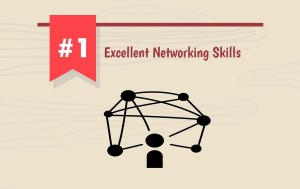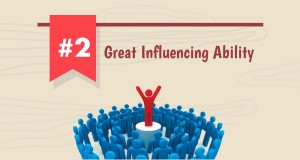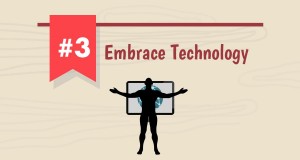Recent research has found that using AI during an asynchronous video interview (AVI) will increase the chances of a job applicant gaining a job offer.
The use of AI in various fields has been a game-changer, and recruitment is no exception. One of the most interesting applications in this domain is how artificial intelligence, particularly tools like ChatGPT, has started impacting job interviews.
Asynchronous video interviews (AVI), in which a candidate responds to pre-recorded questions, have become a common selection method for organizations. This format allows candidates to participate at their convenience, without needing a real-time interviewer. However, the increasing accessibility of AI tools raises questions about fairness, integrity, and cheating in these interview settings.
The recent study “ChatGPT, Can You Take My Job Interview? Examining Artificial Intelligence Cheating in the Asynchronous Video Interview” delves into these issues, investigating how AI impacts candidate performance and perceptions during AVIs.
The Rise of AI in Job Interviews
The recruitment industry has seen a significant transformation with the advent of AI. From automating candidate screening to enabling predictive analytics for assessing future job performance, AI is reshaping the way companies hire talent. One of the latest concerns involves AI assistance in interviews, especially in AVIs, where nervous candidates may feel tempted to use AI tools like ChatGPT to generate their responses.
As discussed in previous articles, asynchronous video interviews have grown in popularity because they offer flexibility for both candidates and interviewers. Candidates record their answers to pre-set questions, and interviewers can review them at their convenience.
This format is handy for high-volume recruitment (global organisations, businesses opening new branches, companies with regular staff turnover IE hiring students) and geographically dispersed applicants. For highly skilled or paid roles, AVIs form the initial part of the recruitment process to reduce the number of human interviews (a cost-saving technique) for applicants who wouldn’t have made the cut.
Research Objectives: Exploring AI Cheating
The study by Damian Canagasuriam and Eden-Raye Lukacik provides the first examination of how AI cheating in AVIs can influence interview outcomes.
Specifically, the researchers sought to understand whether using AI tools like ChatGPT improves a candidate’s performance and how it affects other key factors, such as honesty ratings and procedural fairness.
The study was based on a pre-registered experiment involving 245 respondents from the online research platform Prolific. These participants were randomly assigned to one of three conditions:
1. **Non-ChatGPT Condition:** Candidates responded to interview questions without any AI assistance.
2. **ChatGPT-Verbatim Condition:** Candidates read AI-generated responses word-for-word.
3. **ChatGPT-Personalized Condition:** Candidates provided their résumé or contextual information to ChatGPT and modified the AI-generated responses before using them.
By comparing these groups, the researchers aimed to measure differences in overall interview performance, response content, delivery, perceived honesty, and procedural justice.
Key Findings: AI Boosts Performance but Raises Ethical Concerns
One of the most notable findings of the study is that candidates who used AI assistance, particularly in the ChatGPT-Personalized condition, received significantly higher scores on overall performance and content. This suggests that AI-generated responses are generally more articulate and well-structured than human-generated responses, potentially giving AI users an advantage in the interview process.
The high scores suggest that the cross reference of the applicant’s resume against the contextual information (the job spec) creates more relevant answers. The two of the three rules for a successful interview outcome are 1) identify the job criteria and 2) be a self-promoter.
However, the study also found some drawbacks to using AI in interviews. While AI-assisted candidates performed better in terms of content, their response delivery ratings (i.e., how well they communicated their answers) were not significantly different from those of the non-ChatGPT group. This indicates that the AI-generated content did not necessarily make candidates appear more convincing or engaging in their delivery.
These findings relate to research into impression management – your interview identity, where tonality, body language, word choice, humour, confidence, rapport, and communication style in general, impact the likeability factor influencing the employer’s view of the candidate’s credibility. The third rule of a successful interview is 3) communicate with confidence.
More importantly, both AI conditions received lower honesty ratings than the non-ChatGPT group. This suggests that interviewers or evaluators were able to sense the lack of authenticity in AI-generated responses, even if they couldn’t pinpoint exactly why.
Honesty is a crucial factor in job interviews, and a dip in perceived integrity could negatively impact candidates who rely heavily on AI tools. Four out of the sixteen interview identities are formed when a candidate is perceived as knowledgeable and/or experienced due to the content of the (AI-prompted) interview answer but delivered with poor communication, including the ‘indifferent interview identity’.
Furthermore, candidates in both ChatGPT conditions rated the interview process lower in terms of procedural justice. This indicates that even those who used AI felt that the process was less fair, potentially because they were aware that they were not fully representing themselves. This dissatisfaction with the process may affect their overall perception of the employer and could lead to negative candidate experiences.
Implications for Employers: Fairness and Integrity
For employers, these findings raise important questions about the validity of AVIs as a selection tool in the age of AI. If candidates are using AI to improve their responses, it becomes difficult to determine whether the interview truly reflects the applicants capabilities or if it’s a reflection of AI’s language generation prowess.
Employers may need to reassess their reliance on AVIs and consider whether these interviews can accurately assess a candidate’s potential. In addition, AI detection measures may become necessary to maintain the integrity of the process. Tools that can identify AI-generated content or discrepancies between a candidate’s résumé and their interview responses could help mitigate AI cheating. However, these measures could also introduce new ethical concerns, such as privacy invasion or over-scrutiny of candidates’ personal data.
Moreover, interviewers may need to be trained to focus more on qualitative aspects of the interview, such as authenticity and emotional intelligence, rather than solely on the content of the responses. This shift could help ensure that interviews continue to assess the human qualities that are essential for many roles.

Implications for Job Seekers: The Ethics of AI Assistance
For job seekers, the temptation to use AI tools like ChatGPT in interviews is understandable, especially when facing tough competition. This is especially true for anxious interviewees who may look for a shortcut to help boost their morale during the recruitment process.
AI can help candidates craft more polished and compelling answers, improving their chances of success. However, the study highlights the potential risks of relying too heavily on AI. There are other AI tools that can help job seekers prior to the job interview including Linked-In interview preparation AI tool which helps prepare candidates for job interviews by measuring not only the content of their interview answers but also the applicant’s communication style; filler words, word count, and sensitive phrases.
One key concern is that interviewers may perceive AI-generated responses as dishonest, even if they can’t explicitly identify the use of AI. This perception could harm a candidate’s reputation and lead to lower ratings in areas like integrity and trustworthiness—qualities that are often critical in hiring decisions.
Additionally, candidates who use AI tools may experience feelings of guilt or dissatisfaction with the interview process. If they feel that they are not accurately representing themselves, they may question whether they truly deserve the job, leading to imposter syndrome or a lack of confidence in their abilities.
For those who choose to use AI assistance, the challenge lies in striking the right balance between leveraging AI for improvement and ensuring that their responses remain authentic and personal. Candidates should view AI as a tool to refine their communication, rather than as a crutch that does all the work for them.
A mix of AI assistance and a human mock interview could give the greatest advantage to a job applicant.

Broader Ethical Considerations: The Future of AI in Recruitment
The rise of AI in recruitment presents a broader ethical dilemma: To what extent should AI be allowed to influence the hiring process? On the one hand, AI can help level the playing field by providing candidates with tools to express themselves more effectively, especially for those who may struggle with language or articulation. On the other hand, if AI-generated responses dominate interviews, the process may become more about evaluating AI’s capabilities than assessing the candidate’s own skills and personality.
There is also the risk that over-reliance on AI could lead to a lack of diversity in responses. AI tools like ChatGPT are trained on large datasets, which may not fully capture the nuances of individual experiences, particularly for underrepresented groups. If AI-generated responses become the norm, there is a danger that interviews could lose the diversity of thought and perspective that is essential for innovation and problem-solving.
Employers and candidates alike will need to navigate these ethical challenges as AI continues to evolve and become more integrated into the recruitment process. Clear guidelines and transparency about the use of AI in interviews could help maintain fairness while allowing candidates to benefit from AI tools in a way that enhances, rather than replaces, their own abilities.
Conclusion: Navigating the AI-Assisted Future of Recruitment
As AI becomes more prevalent in job interviews, both employers and candidates will need to adapt. Employers must find ways to ensure that interviews remain a reliable measure of a candidate’s potential, while candidates must carefully balance the benefits of AI assistance with the need to remain authentic and trustworthy.
The future of recruitment will likely involve a combination of human judgment and AI-enhanced tools. The challenge lies in ensuring that this combination enhances the process without compromising the values of fairness, diversity, and integrity that are essential for effective hiring.
Source:
Canagasuriam, D. and Eden?Raye Lukacik (2024). ChatGPT, can you take my job interview? Examining artificial intelligence cheating in the asynchronous video interview. International journal of selection and assessment. doi:https://doi.org/10.1111/ijsa.12491.
Delaney, C. (2021). What Is Your Interview Identity. MX Publishing.













